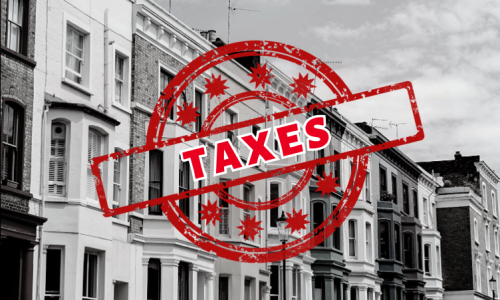What are Capital gains taxes and how to avoid them

Investment properties can be a great way to build wealth over time. However, when it comes time to sell, you may be subject to capital gains taxes. Capital gains taxes can significantly impact your profits, so it’s important to understand how they work and how to minimize or avoid them.
What are capital gains taxes?
Capital gains taxes are taxes on the profits you make when you sell an asset, such as an investment property. The tax rate varies based on several factors, including the length of time you’ve owned the property and your income tax bracket. Short-term capital gains (assets held for less than a year) are taxed at a higher rate than long-term capital gains (assets held for more than a year).
How to avoid or minimize capital gains taxes on investment properties?
- Hold the property for more than a year: As mentioned, long-term capital gains are taxed at a lower rate than short-term capital gains. Holding onto the property for more than a year can help you minimize your tax liability.
- Do a 1031 exchange: A 1031 exchange allows you to defer paying capital gains taxes by reinvesting the proceeds from the sale of one property into another property of equal or greater value. To qualify for a 1031 exchange, you must follow strict rules and deadlines, so it’s important to work with a qualified intermediary.
- Take advantage of depreciation: Depreciation is a tax deduction that allows you to deduct a portion of the property’s value over time. When you sell the property, you’ll have to recapture the depreciation and pay taxes on it. However, if you use a 1031 exchange, you can defer paying taxes on the recaptured depreciation.
- Use an installment sale: An installment sale allows you to spread out the capital gains tax liability over several years by receiving payments for the property over time, rather than in a lump sum.
- Donate the property: If you don’t need the cash from selling your property, you can donate it to a charity and receive a tax deduction for the fair market value of the property.
- Invest in a Qualified Opportunity Zone: By investing in a Qualified Opportunity Zone, you can defer paying capital gains taxes on the sale of an asset for up to 10 years, or potentially even eliminate the capital gains tax if you hold the investment for a long enough period of time.
- Use a Trust: Holding property in a trust can help you minimize capital gains taxes, as the tax basis of the property is “stepped up” to its fair market value at the time of the original owner’s death.
Conclusion
Capital gains taxes on investment properties can significantly impact your profits, but there are several strategies you can use to minimize or avoid them. It’s important to work with a qualified tax advisor to ensure that you’re taking advantage of all available tax benefits and following all applicable rules and regulations.

